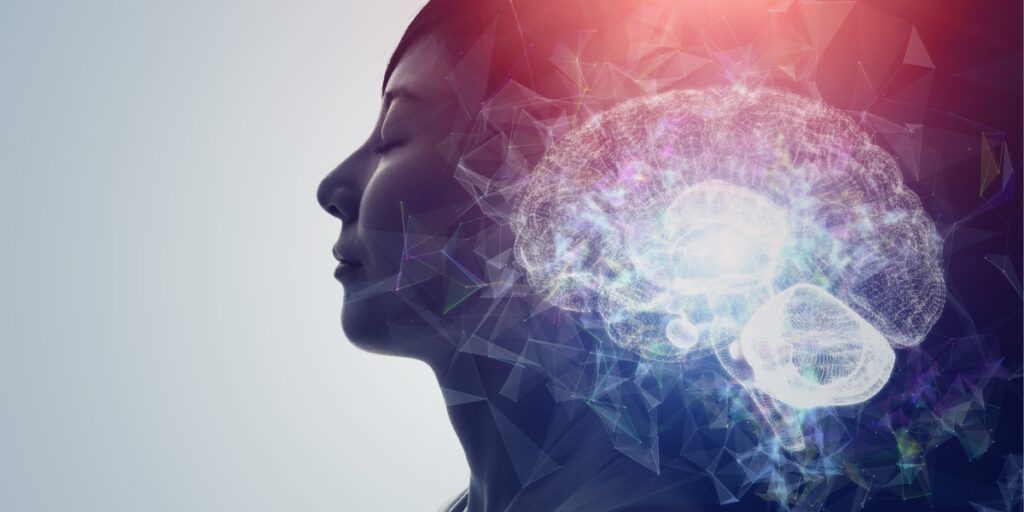Crownview Psychiatric Institute provides customized care for adults whose lives have been disrupted by acute symptoms of complex mental health concerns such as conversion disorder. We provide these services within the context of a welcoming and supportive community.
Much of our programming reflects the principles of the Unified Protocol for Transdiagnostic Treatment of Emotional Disorders. The Unified Protocol, as it is commonly referred to, established a coordinated approach for helping people who have a wide range of particularly challenging mental health.
We employ the Unified Protocol along with a variety of additional methods and modalities to address each client’s specific needs and help them achieve objectives such as the following:
- Overcoming maladaptive thought patterns and other vulnerabilities
- Acquiring skills in important areas such as mindfulness, distress tolerance, and cognitive flexibility
- Experiencing relief from the symptoms of conversion disorder and any co-occurring disorders that they may have developed
- Becoming more self-aware and acting with greater purpose and intent
- Regaining control of their thoughts and actions
What Is Conversion Disorder?
Conversion disorder is a complex and often misunderstood mental health condition. Also sometimes referred to as functional neurological symptom disorder, conversion disorder is characterized by severe physical or neurological symptoms that have no identified physiological cause.
In other words, a person who has conversion disorder may suddenly develop blindness, paralysis, hearing loss, or an array of other potentially debilitating health problems. But medical experts will not be able to identify any physical reasons why the person is experiencing these difficulties.
As established in the fifth edition of the Diagnostic and Statistical Manual of Mental Disorders (DSM-5), a person must meet the following four criteria to be accurately diagnosed with conversion disorder:
- They have or more symptoms of altered voluntary motor or sensory function.
- Clinical assessments provide evidence of incompatibility between the symptom and recognized neurological or medical conditions
- The symptom or deficit the individual has developed is not better explained by another medical or mental disorder.
- The symptom or deficit causes clinically the person to experience significant distress or impairment in social, occupational, or other important areas of functioning, or it warrants medical evaluation.
Conversion disorder is extremely rare:
- The DSM-5 reports that the estimated annual prevalence of conversion disorder is two to five cases per every 100,000 people.
- Various other sources put the estimated annual occurrence of conversion disorder at between five and 14 cases per 100,000 people.
- This means that, among reputable sources, conversion disorder is believed to affect 0.00002%-0.00014% of the population in a given year.
Signs & Symptoms of Conversion Disorder
The signs of conversion disorder can vary considerably from one person to the next. Here are a few examples of how the symptoms of conversion disorder may feel to the person who has the condition or appear to someone else:
- Muscle weakness or paralysis
- Tics or tremors
- Diminished ability to walk
- Tunnel vision, double vision, or blindness
- Partial or complete loss of hearing
- Persistent sense of lump in one’s throat
- Difficulty swallowing
- Speech difficulties, which can include problems forming words, inability to speak with appropriate volume, or loss of the ability to speak
- Frequently fainting or passing out
- Extended periods of unresponsiveness, which can make it appear as though the person is in a coma
People who have conversion disorder also have an increased risk for the following dissociative symptoms:
- Depersonalization, or the sensation that the individual is no longer directly connected to their own body and/or mind
- Derealization, which is the sense that the environment is distorted or distant, or that one has become detached from their surroundings
- Dissociative amnesia, or sudden and severe memory loss, which can include the inability to remember personal information such as one’s name or significant events from one’s past
The presence of dissociative symptoms or episodes are not a requirement for a diagnosis of conversion disorder. However, a December 2004 study in the American Journal of Psychiatry found that nearly half (47.4%) of patients with conversion disorder had a co-occurring dissociative disorder.
What Causes Conversion Disorder?
Experts have not identified a sole cause or precursor for conversion disorder. However, many mental health experts believe that the symptoms of this disorder represent physical manifestations of emotional distress. (The name of the disorder reflects this belief. It alludes to the conversion of psychological pain into physical symptoms.)
The following factors may increase a person’s risk for developing conversion disorder:
- Adverse childhood experiences such as abuse and neglect
- History of stressful life events
- Maladaptive personality traits
- Having an anxiety disorder, dissociative disorder, or personality disorder
- Developing a neurological disease that causes similar symptoms
- Having a close relative who has a neurological disease or disorder
Gender can also be a risk factor for conversion disorder. Experts estimate that this diagnosis is two to three times more common among girls and women than it is among boys and men.
Effects of Untreated Conversion Disorder
The effects of conversion disorder can vary a great deal depending on factors such as which symptoms a person develops, how often these symptoms occur, and how severe they are. The following are possible effects of conversion disorder:
- Disrupted friendships
- Being unable to find and keep a job
- Financial difficulties
- Onset of co-occurring mental health concerns
- Substance use
- Social withdrawal and isolation
Treatment for Conversion Disorder at CPI
At Crownview Psychiatric Institute, treatment for conversion disorder often includes therapy, medication, education, adjunct services, and wraparound support.
Therapy
A 2015 article in the journal Innovations in Clinical Neuroscience reports that “[t]he cornerstone of treatment for conversion disorder is psychotherapy aimed at elucidating the emotional bases of symptoms.”
CPI clients take part in several types of therapy, including individual, group, and family sessions. These sessions may incorporate the practices and principles of several therapeutic approaches, including:
- Acceptance & commitment therapy (ACT)
- Cognitive behavioral therapy (CBT)
- Dialectical behavior therapy (DBT)
- Eye movement desensitization & reprocessing (EMDR) therapy
- Solution-focused brief therapy (SFBT)
- Strengths-based therapy
Medication
A psychiatrist conducts regular meetings with all CPI clients. This professional can prescribe medication when necessary and clinically appropriate. Antidepressants and anxiolytics have proved to be effective for some people who have conversion disorder.
Education
To prepare our clients for successful independent living after they transition out of our care, we offer instruction in both life skills and work skills.
- Life skills education addresses a variety of topics related to basic self-care, such as diet and nutrition, grooming and hygiene, time management, and household finances.
- Work skills education is designed to help clients get and keep a job after they have completed training. Services and activities include personal coaching, job search sessions, and mock interviews.
Adjunct Services
We offer a wide range of adjunct services that may augment a client’s treatment for conversion disorder. Our adjunct options include services such as psychological testing, GeneSight testing, transcranial magnetic stimulation (TMS) therapy, and Spravato® (estketamine) treatment
Wraparound Support
Each CPI client is matched with an experienced case manager. Our case managers help coordinate our clients’ care and communicate with their family. They also help our clients with fundamental life skills such as connecting with community-based resources, getting a driver’s license, learning to use the local public transportation system, and applying for benefits.
Community & Connection
Complex mental health concerns can make it extremely difficult for some people to find a place within their community where they feel like they truly belong. Sadly, by the time many new clients arrive at Crownview Psychiatric Institute, they have virtually abandoned any hope of forming meaningful friendships or being accepted by their peers.
At CPI, we understand the social challenges that our clients have faced, and we work diligently to help them feel welcomed, valued, and supported while they are in our care. We also make a concerted effort to help our clients improve their communication and socialization skills, so that they will be better prepared to successfully reintegrate into their community after they have completed their time with us.
In addition to being a source of superior clinical care and comprehensive wraparound support, we want our treatment center to also be a place where each client can finally understand what it feels like to be a respected member of a vibrant community.
Learn More Today
If someone that you care about has been diagnosed with conversion disorder, please know that help is available. At Crownview Psychiatric Institute, your loved one can get the professional care they need to achieve improved health and realize their greatest potential. To learn more about how our programs and services can benefit your loved one, please contact us at your earliest convenience.




 Gianna Melendez
Gianna Melendez Jodie Dahl, CpHT
Jodie Dahl, CpHT